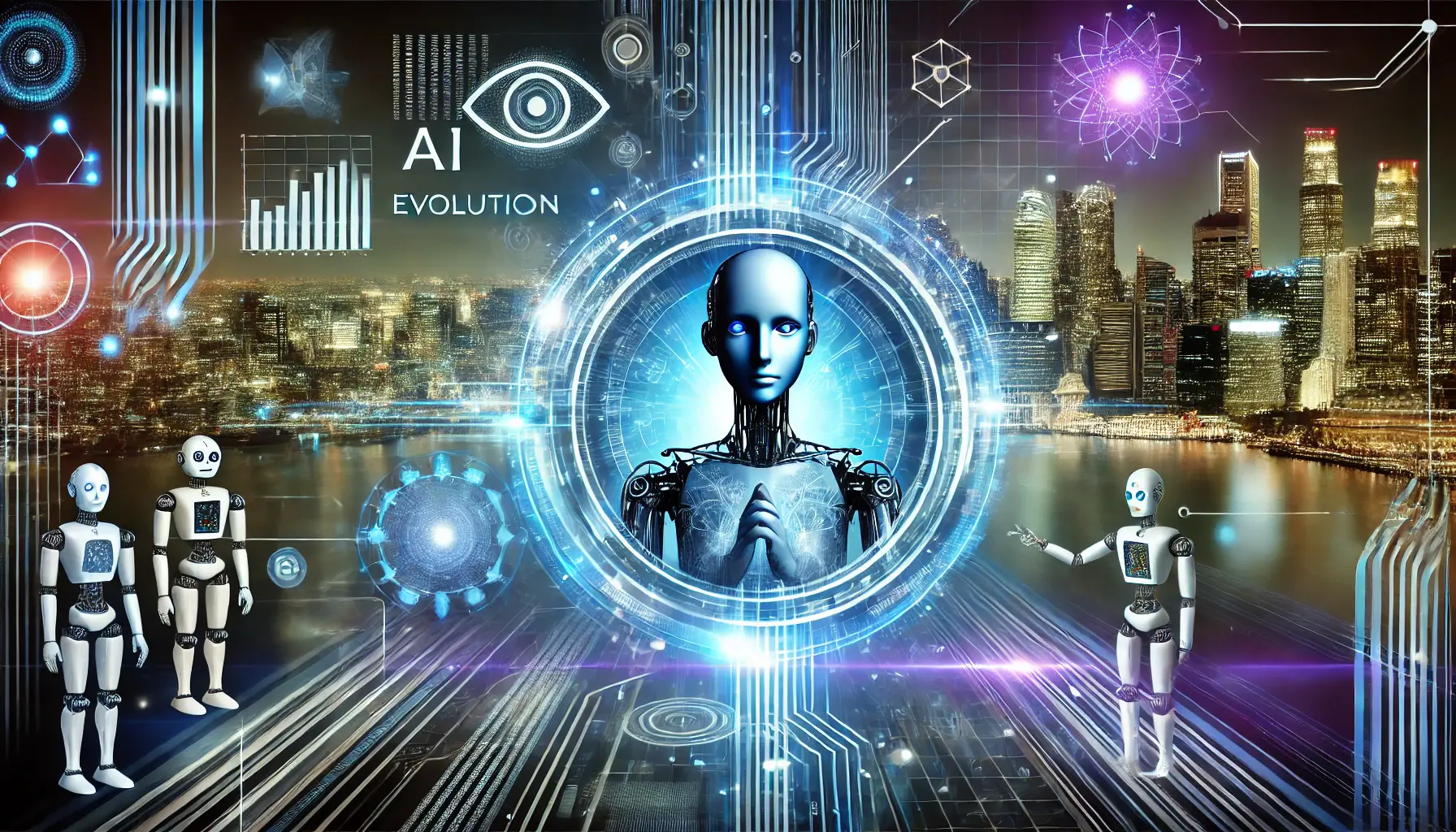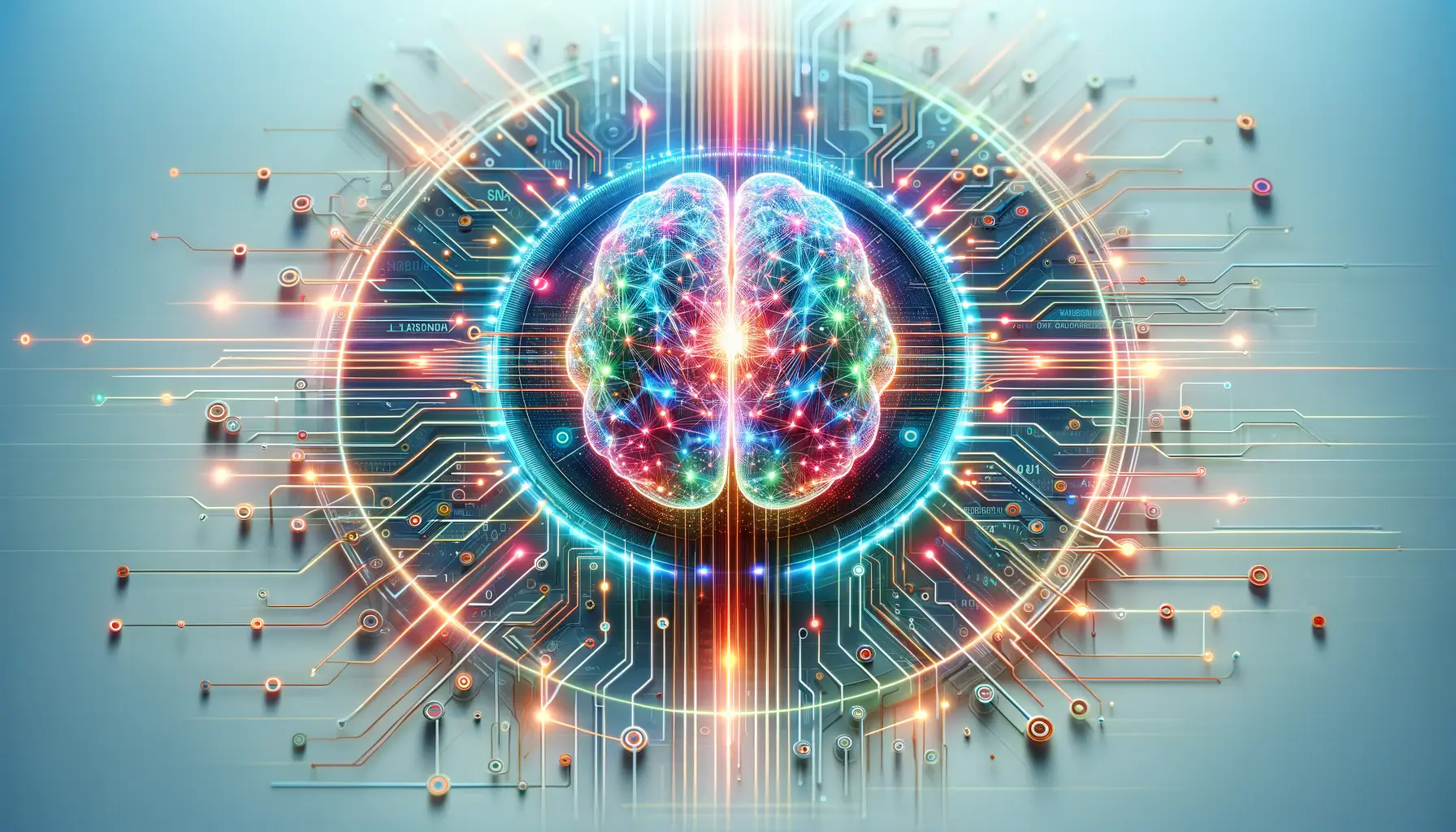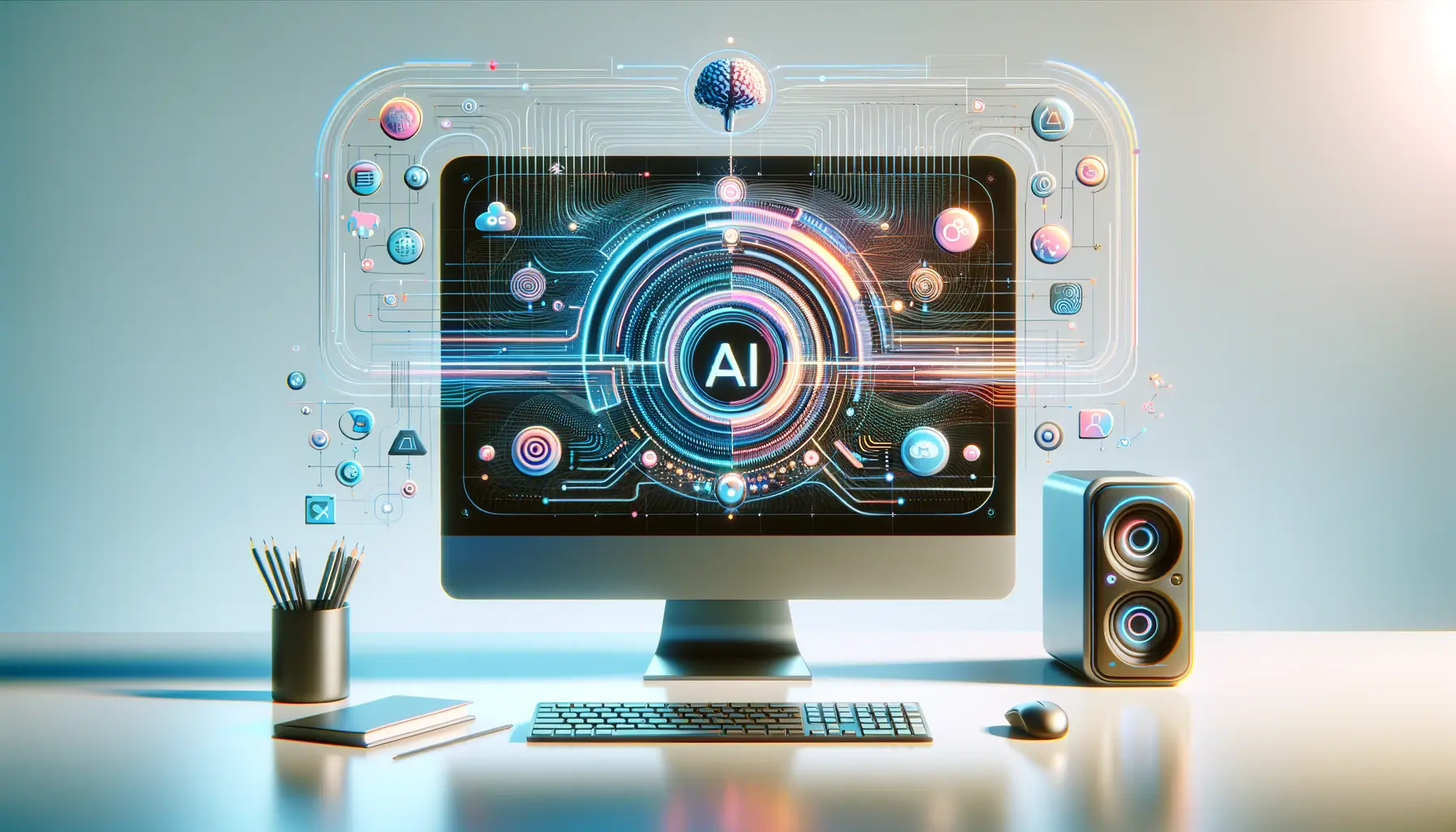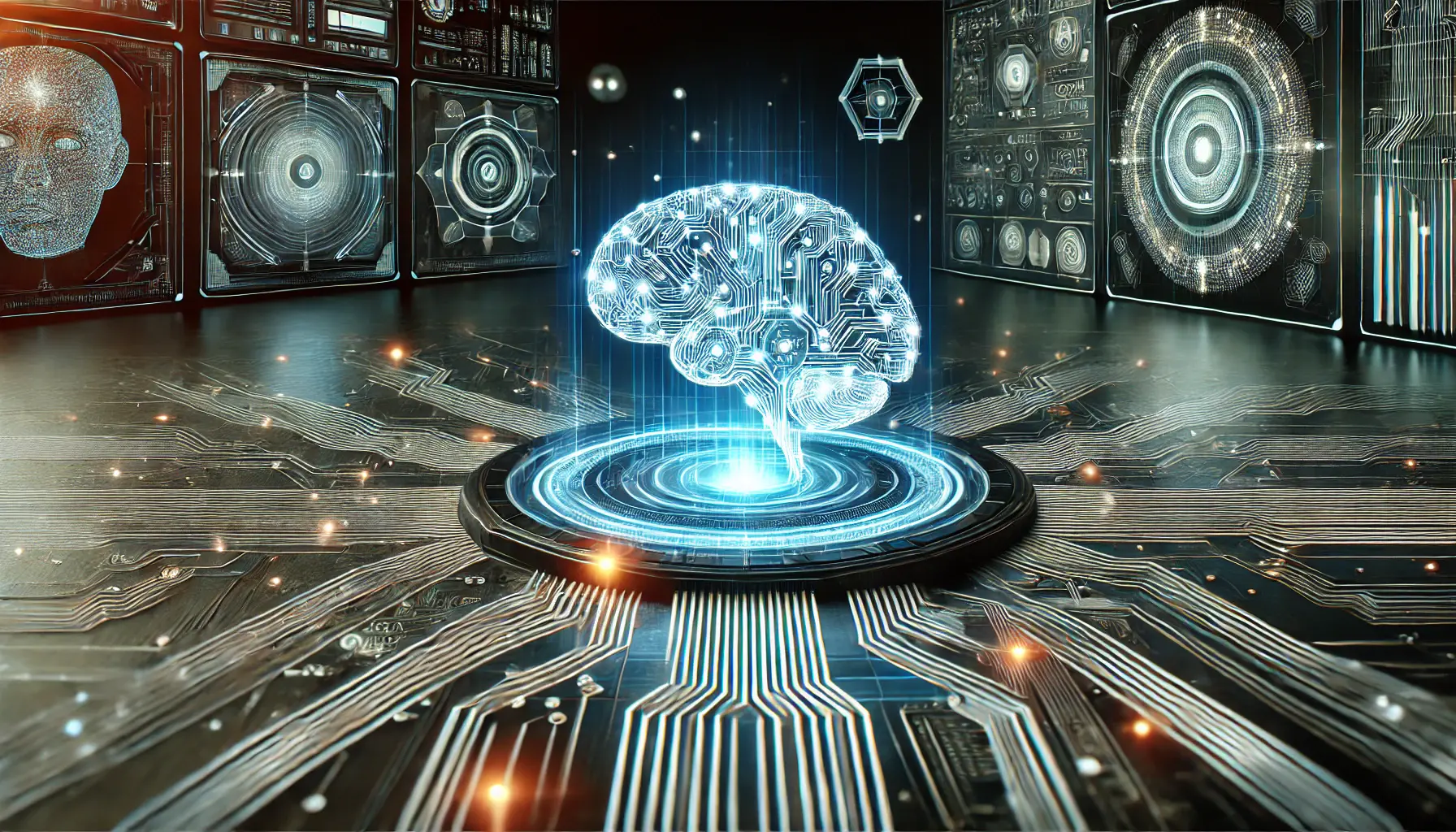The landscape of artificial intelligence is evolving at an unprecedented pace, with ChatGPT 4 at the forefront of this transformation.
This iteration of OpenAI’s groundbreaking technology promises to redefine how we interact with AI, pushing the boundaries of machine learning, natural language processing, and user interaction.
The anticipation surrounding ChatGPT 4 stems from its potential to enhance decision-making processes, automate complex tasks, and provide insights into vast datasets with nuanced understanding and creativity.
As we delve into the future developments of ChatGPT 4, it’s essential to recognize the foundation it’s built upon.
The advancements from its predecessors have set the stage for a more sophisticated, intuitive, and versatile AI model.
ChatGPT 4 is not just an incremental update; it represents a significant leap forward in AI’s ability to understand, learn from, and interact with the human world.
The implications of these developments are vast, touching upon every sector from education and healthcare to finance and entertainment.
- Understanding ChatGPT 4’s Core Enhancements
- Real-World Applications and Impact
- Challenges and Ethical Considerations
- Integration Strategies for Businesses
- Future Trends Influenced by ChatGPT 4
- Maximizing ChatGPT 4’s Potential in Various Industries
- Enhancing User Experience with ChatGPT 4
- Embracing the Future with ChatGPT 4
- FAQs on Future Developments in ChatGPT 4
Understanding ChatGPT 4’s Core Enhancements
Enhanced Learning Algorithms
At the heart of ChatGPT 4’s advancements are its enhanced learning algorithms.
These algorithms have been refined to process information more efficiently, enabling the AI to learn from a broader range of data sources with greater accuracy.
This improvement means ChatGPT 4 can understand context and subtleties in language that were previously challenging, leading to more meaningful and relevant interactions with users.
The ability to learn from diverse datasets also allows ChatGPT 4 to offer more personalized responses.
By understanding the nuances of individual user preferences and historical interactions, ChatGPT 4 can tailor its responses to fit the specific needs and contexts of each conversation, making it a more effective tool for both personal and professional use.
Advanced Natural Language Processing
Another cornerstone of ChatGPT 4’s development is its advanced natural language processing (NLP) capabilities.
These capabilities enable the AI to not only comprehend but also generate human-like text that is coherent, contextually relevant, and creatively engaging.
The improvements in NLP algorithms mean ChatGPT 4 can participate in conversations with a level of depth and continuity that mimics human interaction, making it an invaluable asset for content creation, customer service, and educational applications.
Moreover, the enhanced NLP features of ChatGPT 4 facilitate a better understanding of complex queries.
This means the AI can handle multifaceted questions and provide answers that consider multiple variables, leading to more accurate and helpful responses.
The implications for research, data analysis, and problem-solving are significant, as ChatGPT 4 can sift through extensive information to offer insights that would be time-consuming for humans to derive.
The future developments in ChatGPT 4 are set to revolutionize the way we interact with AI, offering enhanced learning algorithms, advanced NLP capabilities, and a more personalized user experience.
Real-World Applications and Impact
The evolution of ChatGPT 4 is not just a technical milestone; it’s a gateway to numerous real-world applications that could significantly impact various industries.
The advancements in AI capabilities open up new possibilities for enhancing efficiency, creativity, and decision-making processes across different sectors.
Let’s explore some of the key areas where ChatGPT 4 is set to make a substantial difference.
Education and Learning
- Personalized Learning: ChatGPT 4’s ability to understand and interact in a more human-like manner enables personalized education experiences. It can adapt learning materials to fit the student’s pace and style, making education more accessible and effective.
- Automated Tutoring: With its enhanced understanding of complex subjects, ChatGPT 4 can provide real-time assistance and tutoring to students, answering questions and explaining concepts in a way that is easy to understand.
Customer Service and Support
- Enhanced Customer Interactions: Businesses can leverage ChatGPT 4 to offer more nuanced and human-like customer service interactions, improving customer satisfaction and loyalty.
- Automated Problem Solving: ChatGPT 4 can quickly identify and solve customer issues, reducing wait times and improving the overall customer service experience.
Content Creation and Media
- Creative Writing: Authors and content creators can use ChatGPT 4 as a tool for generating ideas, drafting content, and even writing entire articles or chapters, enhancing creativity and productivity.
- Media Production: In the media industry, ChatGPT 4 can assist in scriptwriting, generating dialogue, and creating engaging narratives for movies, TV shows, and video games.
Healthcare
- Medical Research: ChatGPT 4 can process vast amounts of medical literature to assist researchers in identifying trends, potential treatments, and new areas of study.
- Patient Support: Healthcare providers can use ChatGPT 4 to offer personalized advice, answer patient queries, and provide support, thereby enhancing patient care and engagement.
The impact of ChatGPT 4 extends beyond technological innovation, offering transformative possibilities for education, customer service, content creation, and healthcare, among other fields.
Challenges and Ethical Considerations
While the advancements in ChatGPT 4 herald a new era of possibilities, they also bring to light several challenges and ethical considerations.
As we navigate through the integration of this sophisticated AI into various aspects of life, it’s crucial to address these concerns thoughtfully and proactively.
Privacy and Data Security
The ability of ChatGPT 4 to process and learn from vast amounts of data raises significant privacy and data security concerns.
Ensuring the confidentiality and integrity of user data is paramount, especially when sensitive information is involved.
- Implementing robust data protection measures to safeguard user information from unauthorized access or breaches.
- Adhering to strict privacy regulations and standards to ensure user data is handled responsibly.
AI Bias and Fairness
Another critical challenge is the potential for AI bias, where ChatGPT 4’s responses could reflect or amplify societal biases present in the data it was trained on.
Addressing AI bias is essential for ensuring fairness and equity in AI interactions.
- Conducting thorough audits and reviews of training datasets to identify and mitigate biases.
- Developing mechanisms for continuous monitoring and adjustment of AI outputs to promote fairness.
Dependence and Dehumanization
The increasing reliance on AI for tasks and decisions can lead to concerns about human dependence on technology and the potential dehumanization of interactions.
Balancing AI assistance with human judgment and connection is crucial.
- Encouraging the complementary use of AI and human skills to enhance, rather than replace, human capabilities.
- Promoting ethical AI use that supports human dignity and values personal connections.
Regulatory and Ethical Frameworks
Establishing comprehensive regulatory and ethical frameworks for AI development and use is vital for addressing these challenges.
These frameworks should guide the responsible creation and implementation of AI technologies like ChatGPT 4.
- Collaborating with policymakers, technologists, and ethicists to develop standards and guidelines for ethical AI use.
- Ensuring transparency in AI operations and decision-making processes to build trust and accountability.
Navigating the challenges and ethical considerations associated with ChatGPT 4 requires a collaborative and multidisciplinary approach, emphasizing the importance of privacy, fairness, human dignity, and responsible innovation.
Integration Strategies for Businesses
The integration of ChatGPT 4 into business operations offers a transformative potential to redefine customer interactions, streamline processes, and foster innovation.
However, the successful adoption of this advanced AI technology necessitates strategic planning and execution.
Here, we explore effective strategies businesses can employ to harness the full potential of ChatGPT 4.
Identifying Use Cases
Understanding specific business needs and challenges is the first step in leveraging ChatGPT 4.
Identifying clear use cases where ChatGPT 4 can add value is crucial, whether it’s enhancing customer service, automating content creation, or supporting decision-making processes.
- Conducting a thorough analysis of business operations to pinpoint areas where AI can improve efficiency and outcomes.
- Engaging with stakeholders across departments to gather insights and identify potential AI applications.
Developing a Phased Implementation Plan
Implementing ChatGPT 4 should be a phased process, starting with pilot projects that allow for evaluation and adjustment.
This approach minimizes risk and enables businesses to refine their AI strategy based on real-world feedback and results.
- Starting with small-scale pilot projects to assess the impact and effectiveness of ChatGPT 4 in targeted areas.
- Gradually expanding the scope of AI integration based on success metrics and lessons learned from initial implementations.
Building AI Literacy and Skills
For ChatGPT 4 to be effectively integrated into business processes, developing AI literacy and skills within the organization is essential.
This involves training employees to work alongside AI, understand its capabilities, and leverage its potential to enhance their work.
- Offering training programs and workshops to educate employees about AI and its applications in their specific roles.
- Encouraging a culture of continuous learning and innovation, where employees are motivated to explore and experiment with AI solutions.
Ensuring Ethical and Responsible Use
As businesses adopt ChatGPT 4, it’s imperative to prioritize ethical considerations and responsible use.
This includes addressing privacy concerns, ensuring transparency, and preventing bias in AI-driven decisions.
- Implementing ethical guidelines for AI use that align with the company’s values and regulatory requirements.
- Establishing oversight mechanisms to monitor AI applications for fairness, accuracy, and ethical compliance.
Integrating ChatGPT 4 into business operations requires a strategic approach focused on identifying use cases, phased implementation, skill development, and ethical considerations to fully realize its transformative potential.
Future Trends Influenced by ChatGPT 4
The advent of ChatGPT 4 is not just a milestone in AI development; it’s a harbinger of future trends that will shape the technological landscape.
As we look ahead, several key trends emerge, influenced by the capabilities and potential applications of ChatGPT 4.
These trends highlight the evolving relationship between humans and AI, and the expanding role of AI in various domains.
Conversational AI Becomes Mainstream
With ChatGPT 4’s advanced natural language processing capabilities, conversational AI is set to become more mainstream.
Businesses across industries will increasingly adopt chatbots and virtual assistants for a variety of purposes, from customer service to personalized recommendations.
This trend signifies a shift towards more natural and intuitive human-AI interactions, making technology more accessible to everyone.
AI in Content Creation and Entertainment
ChatGPT 4’s ability to generate creative and coherent text will revolutionize content creation and the entertainment industry.
We can expect to see AI-written articles, scripts, and even novels becoming more common.
Additionally, the entertainment industry may leverage ChatGPT 4 to create more engaging narratives and dialogues in movies, games, and virtual reality experiences.
Personalized Education and Learning
The personalized learning experiences enabled by ChatGPT 4 will transform the education sector.
AI tutors and learning platforms will provide students with customized educational content, adapting to each student’s learning pace and style.
This trend towards personalized education will make learning more effective and accessible, potentially reducing educational disparities.
Enhanced Decision-Making in Businesses
ChatGPT 4 will play a crucial role in enhancing decision-making processes within businesses.
By analyzing vast amounts of data and providing insights, ChatGPT 4 will help businesses make informed decisions faster.
This trend will be particularly impactful in fields such as finance, healthcare, and marketing, where data-driven decision-making is key.
AI Ethics and Governance
As AI technologies like ChatGPT 4 become more integrated into society, the importance of AI ethics and governance will grow.
We will likely see the development of more comprehensive frameworks and regulations to ensure the responsible use of AI.
This trend underscores the need to balance innovation with ethical considerations and societal impact.
The influence of ChatGPT 4 on future trends underscores its potential to enhance human-AI interaction, revolutionize content creation, personalize education, improve decision-making, and highlight the importance of AI ethics and governance.
Maximizing ChatGPT 4’s Potential in Various Industries
The introduction of ChatGPT 4 has opened up a plethora of opportunities across various industries.
Its advanced capabilities can be harnessed to drive innovation, improve efficiency, and solve complex challenges.
Here, we explore how different sectors can maximize the potential of ChatGPT 4 to achieve significant advancements.
Healthcare: Revolutionizing Patient Care and Research
In the healthcare industry, ChatGPT 4 can be instrumental in both patient care and medical research.
By analyzing medical data, ChatGPT 4 can assist in diagnosing diseases, suggesting treatments, and personalizing patient care plans.
Furthermore, its ability to sift through extensive research can accelerate the discovery of new medical treatments and drugs.
- Automating administrative tasks to allow healthcare professionals to focus more on patient care.
- Providing virtual assistance to patients for health inquiries, thereby improving patient engagement and satisfaction.
Finance: Enhancing Analysis and Customer Service
ChatGPT 4’s impact on the finance sector can be significant, from automating financial analysis to enhancing customer service.
Its ability to process and analyze large datasets can provide valuable insights for investment strategies, risk management, and market analysis.
Additionally, ChatGPT 4 can offer personalized financial advice to customers, improving their banking experience.
- Streamlining financial reporting and compliance processes through automation.
- Offering 24/7 customer support for banking and financial services, including personalized investment advice.
Education: Personalizing Learning Experiences
ChatGPT 4 has the potential to transform the education sector by providing personalized learning experiences.
It can adapt educational content to match the learning pace and style of each student, making education more accessible and effective.
ChatGPT 4 can also serve as a virtual tutor, offering explanations, answering questions, and providing feedback on assignments.
- Creating interactive and engaging learning materials that cater to diverse learning needs.
- Facilitating language learning through conversational practice with AI.
Retail: Transforming Customer Interactions and Operations
In the retail industry, ChatGPT 4 can enhance customer interactions and streamline operations.
It can offer personalized shopping experiences, recommend products based on customer preferences, and provide instant customer support.
Behind the scenes, ChatGPT 4 can optimize inventory management, predict market trends, and automate supply chain processes.
- Personalizing marketing campaigns based on customer data analysis.
- Improving efficiency in supply chain management through predictive analytics.
By leveraging ChatGPT 4, industries such as healthcare, finance, education, and retail can revolutionize their operations, offering improved services and creating more personalized experiences for their customers.
Enhancing User Experience with ChatGPT 4
The advent of ChatGPT 4 has significantly elevated the potential for creating more intuitive and engaging user experiences.
Its sophisticated understanding of natural language and ability to generate human-like responses enable developers and designers to craft interfaces and applications that are more aligned with human behaviors and expectations.
This section delves into strategies for enhancing user experience (UX) by integrating ChatGPT 4’s capabilities.
Creating More Natural Conversational Interfaces
ChatGPT 4’s advanced natural language processing abilities make it an ideal tool for developing conversational interfaces that mimic human dialogue.
By incorporating ChatGPT 4 into chatbots and virtual assistants, businesses can offer users a seamless and natural interaction experience, whether for customer service, information retrieval, or transactional purposes.
- Designing chatbots that can understand and respond to user queries with contextually relevant and conversational language.
- Implementing virtual assistants in applications and websites that can guide users through complex processes with ease.
Personalizing User Interactions
Personalization is key to enhancing user engagement and satisfaction.
ChatGPT 4 can analyze user data and previous interactions to tailor responses and recommendations, making each user feel understood and valued.
This level of personalization can transform user experiences across e-commerce platforms, content delivery services, and more.
- Utilizing ChatGPT 4 to offer personalized product recommendations based on user preferences and browsing history.
- Customizing content delivery to match the user’s interests, enhancing engagement and time spent on the platform.
Improving Accessibility
ChatGPT 4 can also play a crucial role in making digital experiences more accessible to people with disabilities.
Its ability to understand and generate natural language can be leveraged to offer voice-based navigation and control for users who find traditional interfaces challenging to use.
- Developing voice-activated systems that allow users to interact with applications and services through spoken commands.
- Creating text-to-speech and speech-to-text functionalities that make content accessible to users with visual impairments or reading difficulties.
Supporting Multilingual Experiences
Globalization demands that digital experiences cater to a multilingual audience.
ChatGPT 4’s proficiency in multiple languages enables the creation of applications and services that can interact with users in their native language, breaking down language barriers and expanding market reach.
- Implementing multilingual support in chatbots and virtual assistants to serve a global user base effectively.
- Automatically translating user-generated content to facilitate cross-cultural communication and interaction.
Integrating ChatGPT 4 into the development of digital products and services offers unparalleled opportunities for creating more natural, personalized, accessible, and multilingual user experiences, setting a new standard for user engagement and satisfaction.
Embracing the Future with ChatGPT 4
The journey through the advancements and potential of ChatGPT 4 reveals a future where artificial intelligence significantly enhances human capabilities across various sectors.
From transforming educational paradigms to revolutionizing customer service, content creation, and healthcare, ChatGPT 4 stands as a testament to the remarkable strides made in AI technology.
As we delve into the conclusion of our exploration, it’s clear that the impact of ChatGPT 4 extends far beyond mere technological innovation; it heralds a new era of AI integration into daily life and work.
The Path Forward
As we stand on the brink of this new era, the path forward with ChatGPT 4 is marked by endless possibilities and potential challenges.
The integration of ChatGPT 4 into various industries underscores the importance of strategic implementation, ethical considerations, and continuous learning.
The future trends influenced by ChatGPT 4 highlight the evolving landscape of AI, promising more natural conversational interfaces, personalized user experiences, and groundbreaking applications in content creation and decision-making processes.
Maximizing Potential Across Industries
- Healthcare: Leveraging ChatGPT 4 for personalized patient care and accelerating medical research.
- Education: Utilizing AI to tailor learning experiences and provide accessible education for all.
- Finance: Enhancing data analysis and customer service with intelligent AI solutions.
- Retail: Transforming customer interactions and operations through personalized recommendations and efficient supply chain management.
Enhancing User Experience
The integration of ChatGPT 4 into digital products and services opens up new avenues for creating engaging and intuitive user experiences.
By focusing on natural conversational interfaces, personalization, accessibility, and multilingual support, developers can craft applications that resonate more deeply with users, fostering a sense of connection and satisfaction.
Looking Ahead
The advancements in ChatGPT 4 invite us to reimagine the boundaries of what AI can achieve.
As we embrace these developments, it’s crucial to navigate the future with a sense of responsibility and a commitment to ethical principles.
The potential of ChatGPT 4 to enhance our lives and work is immense, but it must be guided by a thoughtful consideration of its impact on society.
By doing so, we can ensure that the future shaped by ChatGPT 4 is one that benefits all of humanity.
In conclusion, the future developments in ChatGPT 4 offer a glimpse into a world where AI and human intelligence collaborate more closely than ever before.
This partnership promises to unlock new levels of creativity, efficiency, and innovation across all sectors of society.
As we move forward, the key to unlocking the full potential of ChatGPT 4 lies in our ability to integrate these advancements thoughtfully into our lives, ensuring that they serve to enhance, rather than replace, the uniquely human qualities that define us.
FAQs on Future Developments in ChatGPT 4
As ChatGPT 4 continues to evolve, many questions arise regarding its capabilities, applications, and impact. Here are some frequently asked questions to shed light on the future developments in ChatGPT 4.
ChatGPT 4 introduces enhanced learning algorithms, advanced natural language processing, and improved personalization, making interactions more human-like and contextually relevant.
ChatGPT 4 can personalize learning experiences, provide automated tutoring, and support educational content creation, transforming the way students learn and educators teach.
Yes, by offering more nuanced and human-like interactions, ChatGPT 4 can enhance customer satisfaction and streamline support operations across various industries.
ChatGPT 4 can assist in generating creative content, from articles and scripts to personalized marketing materials, boosting productivity and creativity.
It aids in medical research, patient care personalization, and administrative automation, potentially revolutionizing patient experiences and treatment outcomes.
Privacy, data security, AI bias, and the potential for dehumanization are key ethical considerations, necessitating responsible development and use.
Yes, with strategic planning, identifying use cases, and building AI literacy, businesses can effectively integrate ChatGPT 4 to enhance operations and services.
ChatGPT 4 is set to impact conversational AI, content creation, personalized education, and decision-making processes, among other areas.











